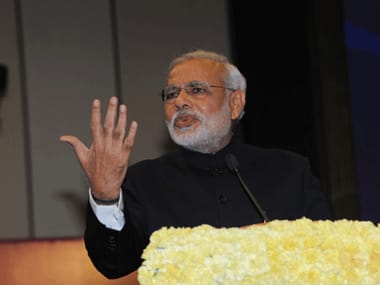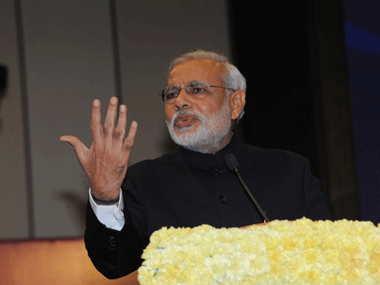The success of a political party’s social media campaign, unfortunately, depends on who is louder, more offensive and have more people adept at vengeful name-calling on their side. This particular variety of an online ‘campaign’ has not been hijacked by who we call trolls - instead such campaigns are shouldered exclusively by the expansive Internet troll population of India. Ugliness is a part of the game and we have thus seen the Gujarat CM been rechristened Feku while the Congress Vice President Rahul Gandhi has been renamed Pappu. The political social media campaign in India has legitimized everything from after-drink wisecracks to badly-worded online brawls as important publicity and propagandist techniques. It has also give rise to an innumerable number of spoof blogs, spoof Twitter handles and fake Facebook pages. While many of these don’t have the party’s official endorsement, the battling parties don’t object to them, as such individual endeavours unwittingly just further the parties’ ambitions and agendas. So we have spoof sites like
www.rahulgandhiachievements.com
and Twitter handles like
@FekuIndia
. Reportedly, www.
narendramodiplans.com
, which was pulled down after Modi’s social media savvy fans hurled abuses at the creator, is now up and running thanks to a Mumbai-based duo. Spoof sites demanding
Sonia Gandhi as the PM
and another naming-shaming the
65 MPs w
ho wrote to Obama urging him to continue giving Modi the cold shoulder, are also doing the rounds on the Internet. [caption id=“attachment_993287” align=“alignleft” width=“380”]
 Narendra Modi. Agencies.[/caption] Taking the easier way around building up a social media army formidable enough to effectively get back at Narendra Modi’s fans, Rahul Gandhi launched Khidkee. He sternly asked the party-men to to maintain dignity and not ’tow party lines’. Manish Tewari backed him up by directing the party to be polite but firm. The Congress, party workers, therefore, have been asked to conduct their Rahul worship rituals within the discreet confines of Khidkee. Now Narendra Modi, who literally is the fire in the bellies of innumerable Internet trolls, has ticked them off. In a recent interview, he urged trolls, to well, ’not troll’. While you wonder what awaits in the future of several thousands of Twitter handles created with the sole idea to bring down, assault and abuse every voice that rises against Modi, here’s what the Gujarat CM said, and
The Economic Times
quoted:
Narendra Modi. Agencies.[/caption] Taking the easier way around building up a social media army formidable enough to effectively get back at Narendra Modi’s fans, Rahul Gandhi launched Khidkee. He sternly asked the party-men to to maintain dignity and not ’tow party lines’. Manish Tewari backed him up by directing the party to be polite but firm. The Congress, party workers, therefore, have been asked to conduct their Rahul worship rituals within the discreet confines of Khidkee. Now Narendra Modi, who literally is the fire in the bellies of innumerable Internet trolls, has ticked them off. In a recent interview, he urged trolls, to well, ’not troll’. While you wonder what awaits in the future of several thousands of Twitter handles created with the sole idea to bring down, assault and abuse every voice that rises against Modi, here’s what the Gujarat CM said, and
The Economic Times
quoted:
“What was the word you mentioned just now? Ah yes, “trolling”. It reminds me of how disinformation would be used by nations against each other, by planting false stories and creating havoc during wars. It is unfortunate that some vested interests are misusing the power of social media to indulge in a similar effort… Recently I had come across an instance where a morphed digital image was circulated with a malicious and slanderous intention. Technology makes it quite easy to accomplish this. We however, have to guard against this sort of disinformation, peddled through fake sites and fictitious accounts.”
While Modi’s Internet fans would cry from the rooftops that they are neither guilty of ‘misinformation’ nor ‘creating havoc’ of any nature, the Gujarat CM probably knows better than openly indulging violent, raucous rabble-rousers at least on the Internet. ‘Morphed pictures’, ‘slandering’, ‘malice’ - unfortunately it would be difficult to dissociate Modi’s social media machinery from any of that, given that more people have willingly jumped into their bandwagon without much of an official invitation. Describing his expectations from social media, Modi, in an interview to news agency ANI said:
It becomes requisite for every Indian Leader to be able to have a two-way communication with the people, especially our Youth. Social Media to me is the most powerful channel for accomplishing this… I am happy to note that the BJP as an organization is looking to creatively harness Social Media to crowd source ideas on how we can change and transform India for the better.
In the interview published on Business Standard , Modi clearly defines that while he does encourage dialogue, ideas and suggestions, he is not willing to align himself with the numerous netizens whose sole achievements have been butchering English grammar, abusing Modi non-fans and singing his paeans without adding anything valuable to the political narrative of the party. It’s also probably an intelligent political move to announce himself as separate from his crazy fans, to distance himself from any political stereotype that risks estranging a more thoughtful electorate. Also, one of the most important attributes of a national leader of any significance is a political personality’s reputation in the international media and political circles. Modi already has a US Visa issue and its consequent reminder of the riots to deal with - something the international political community won’t forget in a hurry. The last thing he would then want to do, is associate himself with communally insensitive abuse on the Internet, Muslim-bashing on social media and anti-Christian rants a section of his fans indulge in. International diplomacy being the one of the important issues that secures a leader’s political future, Modi would naturally not want to be caught empathising with habitual ranters. Given the epitome of diplomacy that Modi has been of late, ’trolling’ is definitely not something up his sleeves. So, while he might secretly guffaw at the Pappu jokes, trust him to never pat the backs of the ones who zealously manufacture them.
)